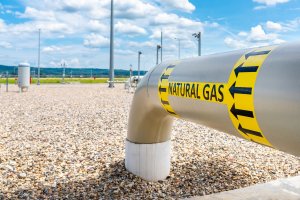The European gas system has entered a structurally volatile phase defined by post energy crisis overbuild, dislocated demand trajectories, and a decoupling mandate under REPowerEU. This paper interrogates the contradictions between fossil lock-in through LNG import capacity and overcontracting, and policy-driven demand reduction. The EU’s pivot to flexible LNG procurement exposes pricing to global volatility, while decarbonisation hinges on electrification, demand-side retrofits and hydrogen feasibility—each encumbered by cost, infrastructure lag, and political friction. We assess Europe’s gas outlook through the decade’s residual volatility, policy ambivalence, and the emerging global LNG oversupply regime — a clash with geopolitical energy security imperatives, domestic backlashes against capital-intensive green technologies and market inertia. We argue that Europe’s energy system now operates in a zone of structural ambiguity—where security, sovereignty, economy and climate ambition remain deeply entangled, but as yet far from operationally aligned.
Working Paper
European Natural Gas through the 2020s: the Decade of Extremes, Contradictions and Continuing Uncertainties
Working Paper By
Working Paper By
Download- Wp 233 Grubb Et Al Gas Paper (pdf, 9.46 MB)
- D40 Market Structure, Pricing, and Design - General
- D4 Market Structure, Pricing, and Design
- D43 Oligopoly and Other Forms of Market Imperfection
- D47 Market Design
- E00: Macroeconomics and Monetary Economics: General
- F0 General International Economics
- F1 Trade
- F15 Economic Integration
- F2 International Factor Movements and International Business
- F21 International Investment • Long-Term Capital Movements
- F4 Macroeconomic Aspects of International Trade and Finance
- F41 Open Economy Macroeconomics
- F5 International Relations, National Security, and International Political Economy
- F51 International Conflicts • Negotiations • Sanctions
- F53 International Agreements and Observance; International Organizations
- F60 General
- F62 Macroeconomic Impacts
- G1 General Financial Markets
- G13 Contingent Pricing • Futures Pricing
- G01 Financial Crises
- H1 Structure and Scope of Government
- H12 Crisis Management
- H4 Publicly Provided Goods
- H43 Project Evaluation • Social Discount Rate
- H5 National Government Expenditures and Related Policies
- H56 National Security and War
- H6 National Budget, Deficit, and Debt
- H63 Debt • Debt Management • Sovereign Debt
- L1 Market Structure, Firm Strategy, and Market Performance
- L13 Oligopoly and Other Imperfect Markets
- L6 Industry Studies: Manufacturing
- L62 Automobiles; Other Transportation Equipment; Related Parts and Equipment
- L95 Gas Utilities • Pipelines • Water Utilities
- O1 Economic Development
- O19 International Linkages to Development • Role of International Organizations
- O2 Development Planning and Policy
- O25 Industrial Policy
- O3 Innovation • Research and Development • Technological Change • Intellectual Property Rights
- O38 Government Policy
- O40: Economic Growth and Aggregate Productivity: General
- O43 Institutions and Growth
- O5 Economywide Country Studies
- O52 Europe
- Q34 Natural Resources and Domestic and International Conflicts
- Q35 Hydrocarbon Resources
- Q4 Energy
- Q41 Demand and Supply • Prices
- Q47 Energy Forecasting
- Q48 Government Policy
- Q5 Environmental Economics
- Q54 Climate • Natural Disasters and Their Management • Global Warming





